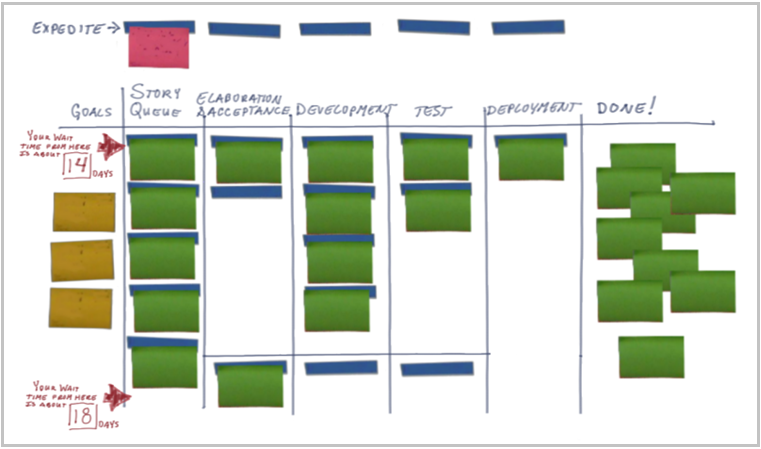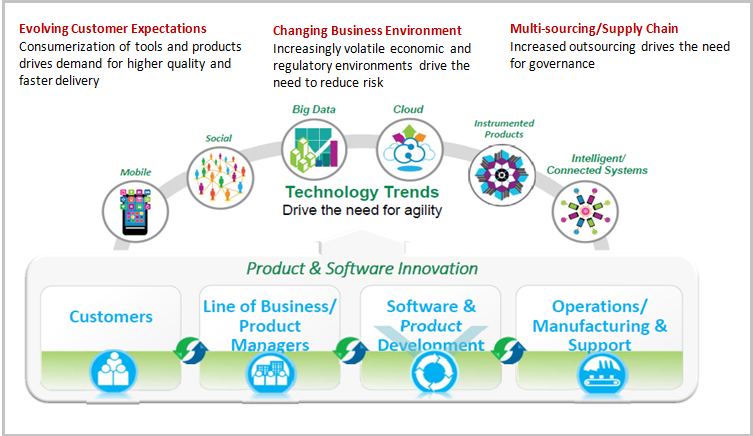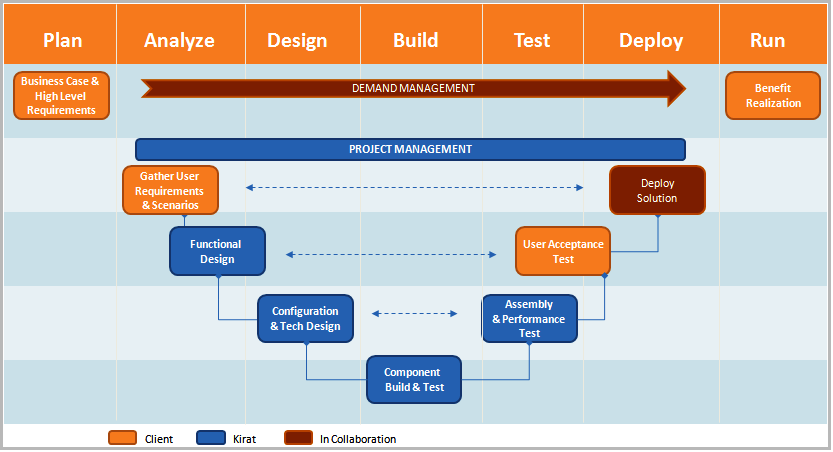Methodology
DevOps Model - Agile development approach
Kirat
follows DevOps a variation of proven Agile methodology for most of
its engagements which works in the interest of client as well.
Agile represents a change in thinking, whereas DevOps implements
it. It spans the entire lifecycle, includes business planning,
Initiation, delivery and feedback. The goal is to enable
continuous delivery of software‐driven processes and innovation.
Benefits:
- Iterative, incremental and evolutionary
- Efficient and face-to-face communication
- Very short feedback loop and adaptation cycle
- Quality focus

Kanban
Kanban is a new technique for managing a
software development process in a highly efficient way.Kirat
suggests clients to «Stop One big project approach» principle :
granular approach to control costs : one project for each rollout
/ key feature. Kirat has sucessfully implemented few small
projects using this technique.
A software development process can be thought of as a pipeline with feature requests entering one end and improved software emerging from the other end. Inside the pipeline, there will be some kind of process which could range from an informal ad-hoc process to a highly formal phased process.A simple process flow has these steps:
- Define Goal
- Elaboration & Acceptance criteria
- Development
- Test
- Deployment

Emerging development
In today's world, the impact of
Social Media on businesses can't be ignored, so haven't we. Kirat
is well equipped with current Technology trends in this space to
deliver projects based on SMAC (social media, mobile, analytics
and cloud).
The main drivers being:
- Evolving Customer Expectation
- Changing Business Environment
- Multi-sourcing Supply Chain
- Technology Advancements

Waterfall Life-Cycle Model
Kirat has rich experience in delivering projects based on Waterfall model augmented with Software Factory delivery mode when client prefers. Benefits are:
Value Delivery:
- Managed Delivery accountability
- Shared management & governance
- Shared expertise
- Access to niche skills
- Scalable, faster ramp up/ ramp down
- Standard processes & tools
Cost:
- Wider cost sharing as experts leveraged across multiple projects
- Lower overall governance costs
- Productivity improvement (focus on industrialization and specialization)
- Increased quality (due to repeatability)
